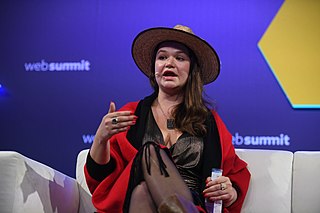A Quote by Vivek Wadhwa
Big companies such as Google and Facebook buy startups at ridiculously high prices - not for their products, but for their people.
Quote Topics
Related Quotes
In England, all the English car companies were beginning to circle the drain in a series of well-deserved failures and bankruptcies, earned by making lousy products with very poor production at high prices. So, the government, back in the '70s, nationalized all the British car companies. The result was British Leyland, a name that perhaps doesn't resonate much with you.
Companies that acquire startups for their intellectual property, teams, or product lines are acquiring startups that are searching for a business model. If they acquire later stage companies who already have users/customers and/or a predictable revenue stream, they are acquiring companies that are executing.
At the end of the day, people (customers) don't necessarily buy into what you do; they buy into why you do it. People buy Apple because they love the Apple brand - what it stands for - they feel proud to be associated with that brand. What makes Google or Virgin or any of these 'superior' brands what they are is that they have a mission to change the world. Those are the kinds of companies that will endure the test of time.
You could have a zillion Facebook followers. Those people don't buy records. It's about a hundred to one...Record companies, they don't have any money so they see social media as the free marketing...So,...'Billy, light yourself on fire and stand upside down, and that'll market the record'. I've spent a lot of time thinking about this. I don't think people by records because of anything that happens on Facebook. They buy records cause they're friends say 'I bought this record and I love it'.
Whether it's Facebook or Google or the other companies, that basic principle that users should be able to see and control information about them that they themselves have revealed to the companies is not baked into how the companies work. But it's bigger than privacy. Privacy is about what you're willing to reveal about yourself.


































